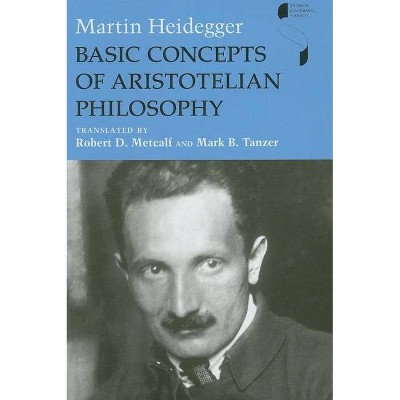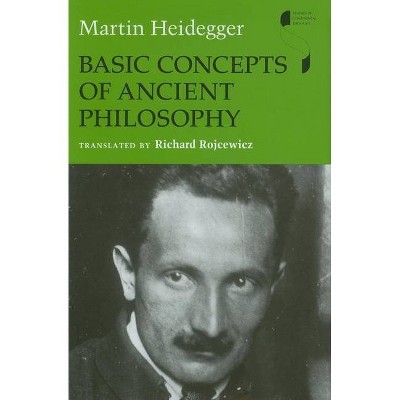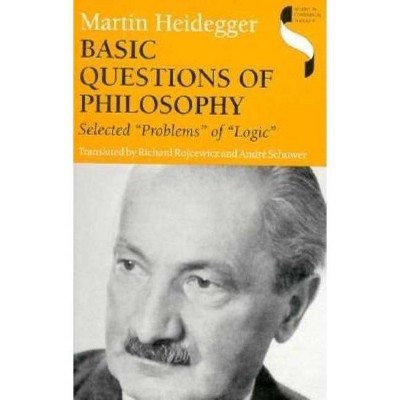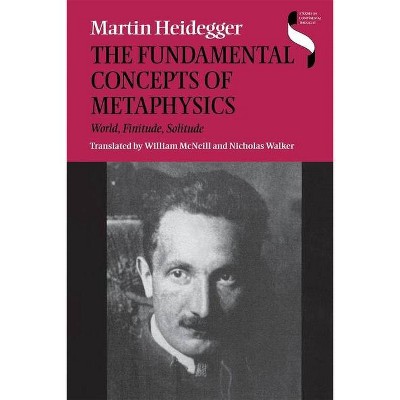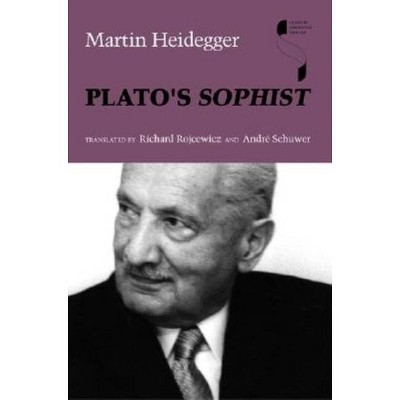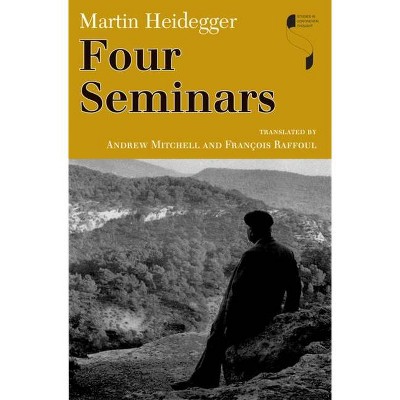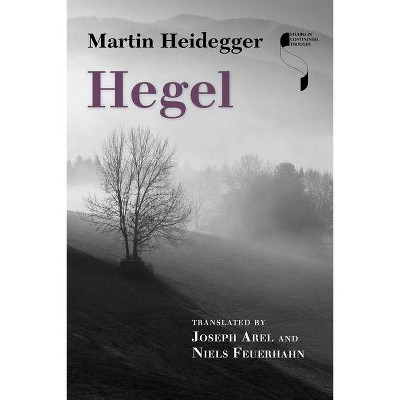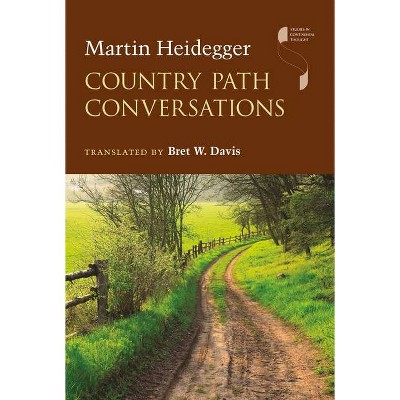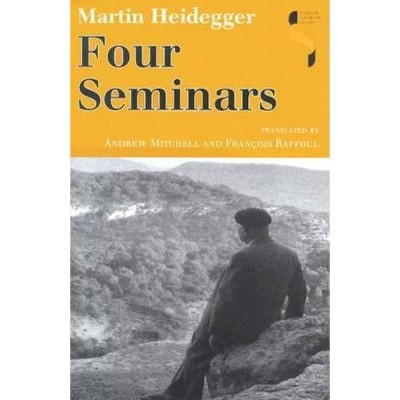Basic Concepts - (Studies in Continental Thought) by Martin Heidegger (Paperback)
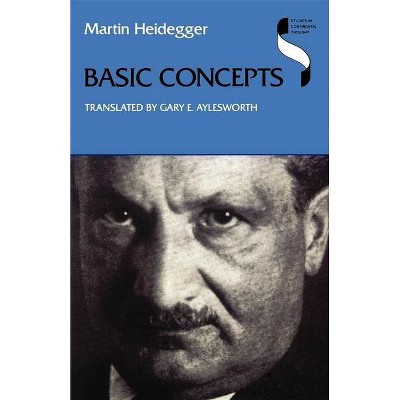
Similar Products
Products of same category from the store
AllProduct info
<p/><br></br><p><b> About the Book </b></p></br></br>Aylesworth, Basic Concepts provides a concise introduction to Heidegger's later thought.<p/><br></br><p><b> Book Synopsis </b></p></br></br>This clear translation of Martin Heidegger's lecture course of 1941 offers a concise introduction to the new directions of his later thought. In this transition, Heidegger shifts from the problem of the meaning of being to the question of the truth of being.<p/><br></br><p><b> From the Back Cover </b></p></br></br>Basic Concepts, one of the first texts to appear in English from the critical later period of Martin Heidegger's thought, strikes out in new directions. First published in German in 1981 as Grundbegriffe (volume 51 of Martin Heidegger's collected works), it is the text of a lecture course that Heidegger gave at Freiburg in the winter semester of 1941 during the phase of his thinking known as the "turning". In this transition Heidegger shifted his attention from the problem of the meaning of being to the question of the truth of being. The text consists of an introduction and two parts. In the introduction Heidegger explains the meaning of his title as "concepts of ground". Part One, divided into three sections, attempts to thematize the difference between being and beings. The first section takes up the metaphysical, logical, grammatical, and everyday meanings of the verb "to be" and shows their inadequacy. The second section, a strikingly original discussion, examines a series of eight directives for reflecting on being. The third section shifts from being toward man and points to the discord between the two. In Part Two, Heidegger interprets two fragments by Anaximander to recover an "incipient saying of Being" that is poetic rather than metaphysical. In this clear translation by Gary E. Aylesworth, Basic Concepts provides a concise introduction to Heidegger's later thought.<p/><br></br><p><b> Review Quotes </b></p></br></br><br><p>Heidegger's method is unmistakable in these lectures. . . . This is thinking that is alive, always green.</p>-- "Review of Metaphysics"<br><br><p>This translation . . . enlarges our historical view of the probing advances in Heidegger's thought.</p>-- "International Studies in Philosophy"<br><br><p>This translation is an excellent and accessible introduction to the later Heidegger. Published posthumously in 1981 as Grundbegriffe, this 1941 lecture series is an important marker in Heidegger's thinking and gives us access to his respelling out of the question of being and time. Here he sets forth eight guidewords that seem to be irresolvably contradictory assertions about being. The fact that being eludes modern reflection leads Heidegger to return to the beginnings of Western philosophical thought in search of the fateful decision about how being was to be thought--and by extension, how human being was to be defined. He asks, What if all previous answers to the questions of who we are were merely the repeated application of a [fatefully wrong] answer given long ago? While Heidegger spells out more fully his critique of humanist definitions of man in Letter on Humanism (1947), the present text shows us how his view there arises out of the quest for the meaning of being in the face of our modern forgetfulness of the ontological difference. In the second part of this work, Heidegger turns to two fragments from Anaximander, which, taken together in his interpretation, articulate at the very dawn of Western philosophy an initial saying of being and time together as timely emergence. Aylesworth's well--translated edition is essential for undergraduate libraries, recommended also for general readers, graduate students, faculty.June 1994</p>--R. E. Palmer "MacMurray"<br><p/><br></br><p><b> About the Author </b></p></br></br><p>Gary E. Aylesworth teaches philosophy at Eastern Illinois University.</p>
Price History
Price Archive shows prices from various stores, lets you see history and find the cheapest. There is no actual sale on the website. For all support, inquiry and suggestion messagescommunication@pricearchive.us
